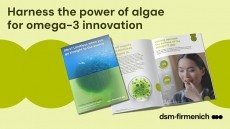Increasing skepticism, but food labels still influence decisions
The FDA has carried out ten such surveys since 1982, examining Americans’ attitudes and knowledge about health and nutrition. The newly released results from a 2008 poll showed the percentage of people claiming to read a food label the first time they bought a product had increased from 44 percent in 2002 to 54 percent in 2008. And nearly half of those surveyed (49 percent) said that their decision to buy or use a food product had changed because they had read the nutrition label.
The survey, of more than 2,500 adults nationwide, found that 56 percent of respondents thought some or none of the claims made on food labels were accurate – including ‘cholesterol-free’, ‘high fiber’, and ‘low fat’.
Most commonly reported reasons for reading food labels were seeing how high or low a food is in elements like salt, calories, vitamins and fat; and getting a general idea of the nutritional content of a food. The poll also showed that Americans’ understanding that their dietary habits influence their health, and heart disease in particular, has increased dramatically.
Awareness of a link between trans fatty acids and heart disease has nearly doubled since 2004, from 32 percent to 62 percent. Meanwhile, awareness of omega-3’s link with lowered risk of heart disease rose from 31 percent in 2004 to 52 percent in 2008.
FDA’s labeling plans
The FDA has announced plans to reassess front-of-pack an on-shelf nutrition labeling systems in order to ensure they provide consumers with useful, meaningful nutritional information. In the dying days of the Smart Choices front-of-pack labeling program last year, the agency announced in a letter to industry its intent to establish “standardized, science-based criteria” on which nutrition labeling must be based. The Smart Choices program had been widely criticized for allocating its green check mark to sugary cereals.
The agency has also said it is researching ways in which the Nutrition Facts panel could be revised to make it more helpful to consumers.












